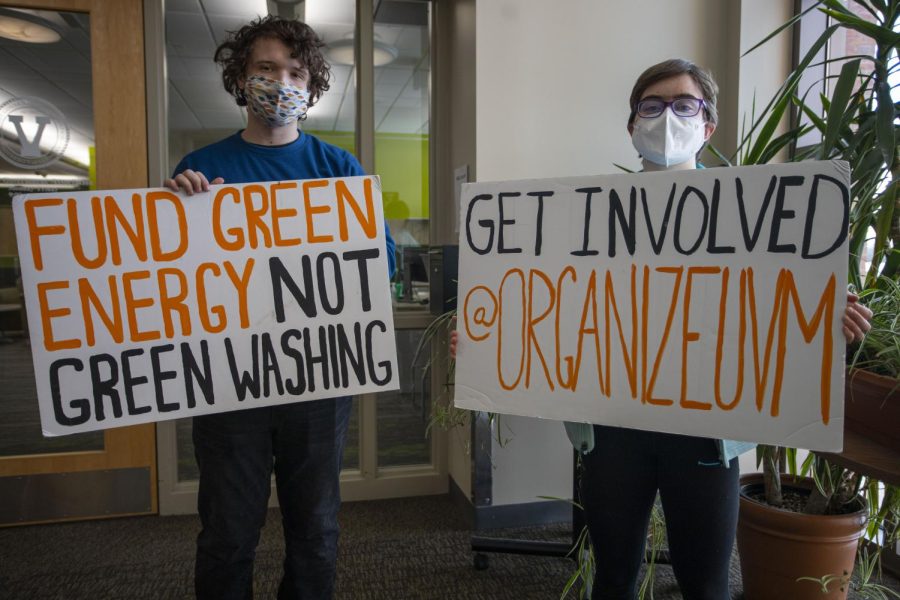Organize engagement drops following achieving divestment
Organize lost momentum after the University announced the club’s initial goal of divesting UVM funding from fossil fuels in July 2020, said Organize President David Sidelle, a senior. Organize now focuses on holding the University accountable to its 2010 climate action goals.
Since UVM failed to meet all of its Climate Action Plan goals, the University updated its CAP, according to an Oct. 27, 2021 Cynic article. Organize’s aim to hold UVM accountable for its 2010 goals, as outlined on its club webpage has yet to be updated in line with UVM’s new direction.
“After the board of trustees committed to divestment in the summer of 2020 […] our hope has been to ride the momentum from the victory and continue building an inclusive and compassionate community of student environmentalists,” Organize’s club webpage stated.
The board of trustees announced plans in July 2020 to fully divest UVM’s funding from all direct and public fossil fuels by 2023, according to UVM’s website. The divestment was Organize’s primary goal when the club formed in 2019, according to the UVM Clubs website.
“Things sort of died down towards the end of last semester,” Sidelle said. “We didn’t have a ton of continued engagement and that was just a product of the burnout of a lot of people and other opportunities and problems arising in different areas of our lives.”
The impacts of the pandemic played a part in the decline in student engagement, said Organize Vice President Christine Fleming, a senior.
“I feel like membership definitely dropped off when we went online because it’s really hard to get people to actively protest online,” Fleming said. “There’s not really much you can do besides talk.”
One recent function the club took on aims to connect students to other off-campus climate justice organizing and advocacy work, Sidelle said.
Last semester, Organize protested the Line 3 tar sands pipeline, a construction of pipelines impacting the land of indigenous communities, according to a Sept. 27, 2021 Cynic article.
Organize more recently encouraged students to attend a protest opposing deforestation Feb. 5 outside Burlington City Hall.
“The Green Mountain National Forest is our state’s only national forest park,” said Organize Treasurer Matt Hand, a junior. “We wanted to protect that because logging is something that is important and can be done to generate profits for the state or other companies.”
The protest went against the deforestation of the National Green Mountain Forest, located in the Telephone Gap, a resource project area located in Rutland, Windsor and Addison counties, which could be used to facilitate logging affairs, according to the Save Public Forests website.
Organize is considering putting energy into relevant issues for students, such as transforming lawn spaces into rain gardens, investing in greener transportation, the electrification of a bus fleet and generally being more cost-effective to cut down carbon emissions, Hand said.







